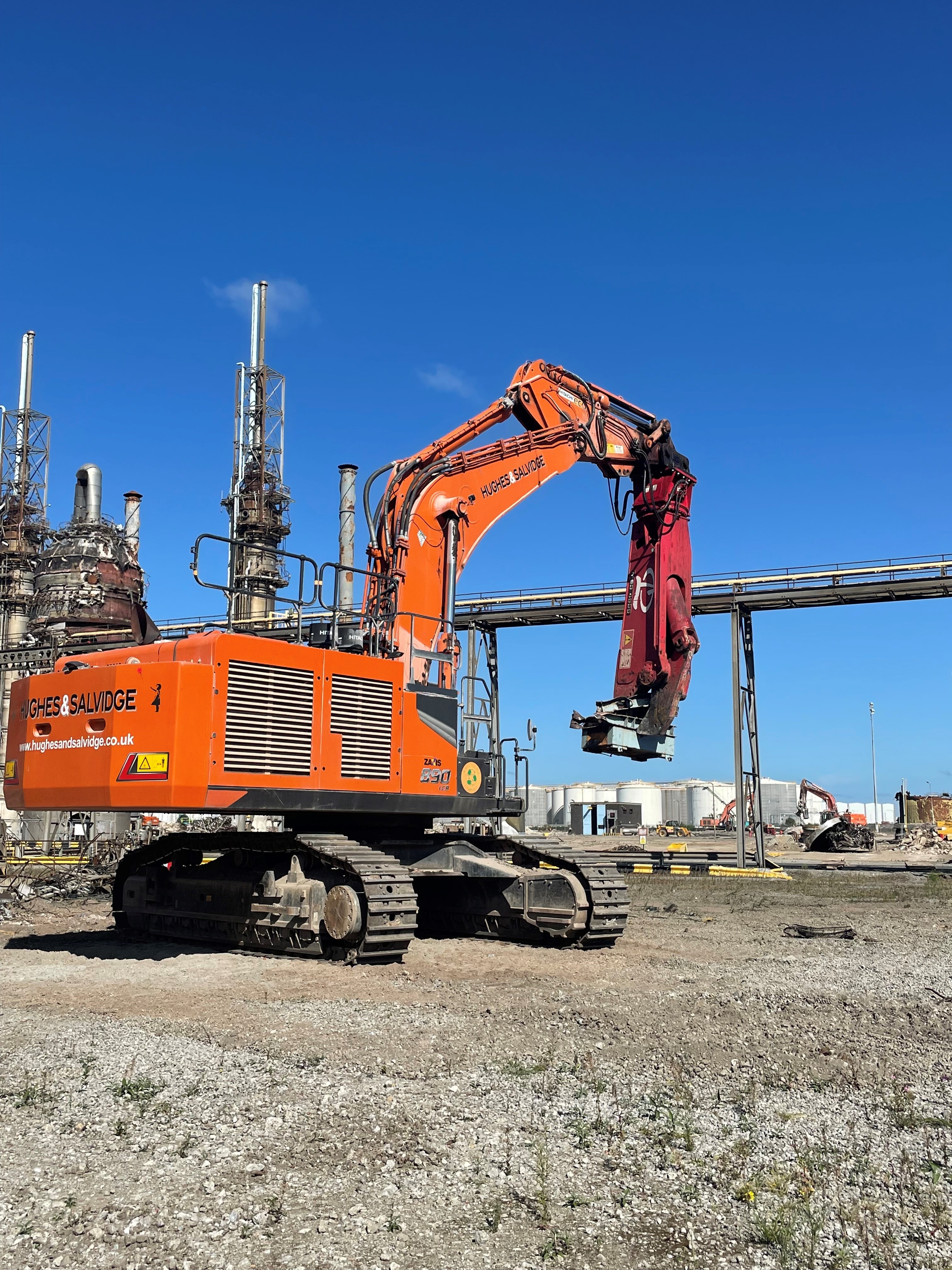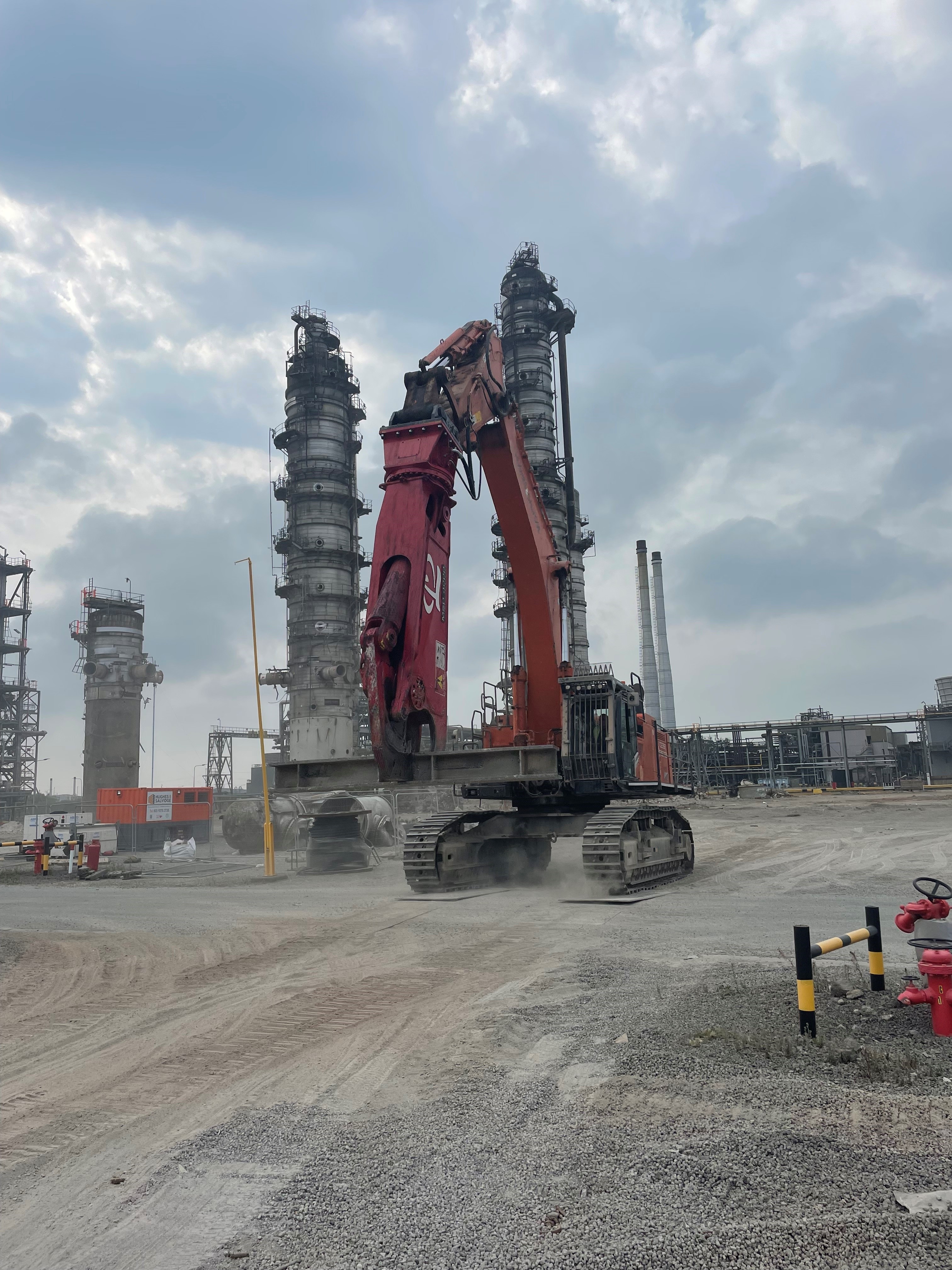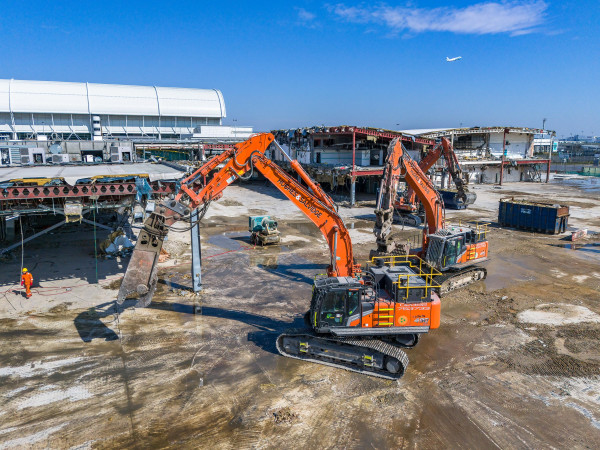Decommissioning Deep Dive
Luke Gould 26th September 2023
Demolition - Site Clearance - Decomissioning
In the UK construction and demolition industry, decommissioning is a pivotal process that involves the systematic and safe removal of structures or equipment from service.
It plays a significant role in sustainable development, as decommissioning ensures the safe disposal of obsolete infrastructure, reduces environmental impact, and paves the way for new projects. This article explores the essence of decommissioning, its importance, and its impact on the construction/demolition landscape in the United Kingdom.
Understanding Decommissioning
Decommissioning in the UK construction/demolition industry is a comprehensive operation that involves dismantling, removing, or repurposing various structures, machinery, or equipment that have reached the end of their lifecycle. It applies to a wide range of projects, from industrial facilities and power plants to commercial buildings, bridges, and offshore installations. The primary goal is to eliminate potential risks, ensure safety, and mitigate environmental hazards associated with the presence of redundant structures.
The Importance of Decommissioning
Environmental Protection: Decommissioning plays a vital role in safeguarding the environment. Structures and equipment that are left unattended and/or not properly decommissioned can leak harmful substances into the surroundings, leading to soil and water pollution. Proper decommissioning ensures the removal and disposal of hazardous materials in a controlled and safe manner.
Resource Efficiency: By decommissioning obsolete structures, the industry can reclaim valuable resources such as metals, concrete, and other materials. These can be recycled or repurposed for new construction projects, reducing the need for raw materials and minimising the industry’s carbon footprint.
Safety Enhancement: Abandoned structures or equipment can pose significant safety risks to nearby communities. By decommissioning these structures, potential accidents, structural failures, or uncontrolled releases of hazardous materials can be prevented, ensuring public safety.
Regulatory Compliance: The UK construction/demolition industry is subject to strict regulations and guidelines pertaining to decommissioning. Meeting these requirements is essential to avoid legal repercussions and maintain a positive reputation both in the industry and with the general public.

The Decommissioning Process
Planning and Assessment: The decommissioning process begins with thorough planning and assessment. Hughes and Salvidge’s experts evaluate the structure or equipment to determine the appropriate method for decommissioning, taking into account factors such as safety, environmental impact, and salvageable materials.
Risk Mitigation: Identifying potential hazards is critical. Safety measures and contingency plans are put in place to mitigate risks associated with the decommissioning process. These plans ensure the protection of workers, nearby communities, and the environment
Dismantling and Removal: During this phase, the structure or equipment is methodically dismantled, and any hazardous materials are removed safely. Careful consideration is given to waste management, with hazardous waste being disposed of in accordance with regulations.
Salvage and Recycling: Salvaging valuable materials is an essential aspect of decommissioning. Salvaged materials can be repurposed, reducing the demand for new resources and minimising waste.
Site Restoration: After the successful decommissioning and removal, the site is restored to a safe and environmentally sound condition. The restoration process may involve land remediation to eliminate any remaining pollutants and restore the site’s natural state.
Decommissioning is a crucial and responsible practice in the UK construction/demolition industry. By ensuring the safe removal and disposal of redundant structures and equipment, decommissioning protects the environment, enhances safety, and fosters resource efficiency. Embracing sustainable decommissioning practices is not only a legal and regulatory obligation but also an ethical responsibility to build a better and greener future for generations to come.
Need help with your next development?
Hughes and Salvidge offer expert decommissioning services as part of our complete demolition solution. We offer unparalleled expertise and a comprehensive range of specialised services, all under one roof. Whether you're revitalising an urban area, repurposing a historic building, or clearing the way for new construction, our skilled team is ready to support every step of your project. Get in touch to learn more.




